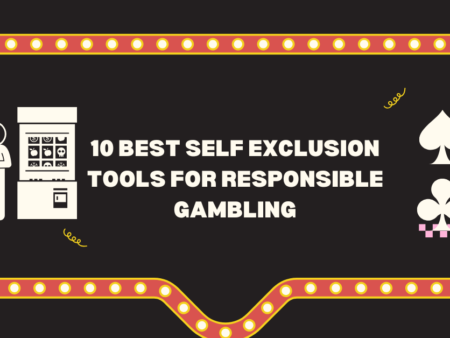International Online Gambling
Online gambling has transformed into a massive global industry, with millions of players placing bets on casinos and sportsbooks across different jurisdictions. The internet has removed geographical barriers, allowing gamblers to access platforms operated from various parts of the world. However, with this expansion comes the challenge of regulation. Each country has its own stance on gambling—some embrace it with strict regulations, while others ban it entirely. To ensure fairness, security, and responsible gaming practices, various international gambling authorities have emerged. These regulatory bodies oversee casinos, issue licenses, and enforce rules to protect players and maintain the industry’s integrity. But not all authorities operate under the same principles—some impose stricter regulations, while others provide more flexibility to operators. Understanding these differences is crucial for both players and businesses in the online gambling sector.
Major International Gambling Authorities
Several types of gambling regulatory bodies exist. Generally, they can be divided into international and national authorities. International gambling authorities issue licenses that allow operators to accept players from multiple countries, while national regulators focus on overseeing gambling within a specific jurisdiction. Among the most well-known international regulators are Curacao eGaming, the Malta Gaming Authority (MGA), and the Gibraltar Gambling Commissioner.
- Curacao eGaming is one of the oldest and most accessible licensing bodies. It offers relatively low-cost licenses with fewer restrictions, making it a popular choice for many online casinos. However, its oversight and enforcement measures are often seen as more lenient compared to other regulators.
- Malta Gaming Authority (MGA) is regarded as one of the strictest and most reputable licensing authorities. It enforces high standards regarding fairness, anti-money laundering (AML) policies, and responsible gambling measures, making it a preferred license for operators seeking credibility.
- Gibraltar Gambling Commissioner oversees gambling operators based in Gibraltar, a British Overseas Territory. Like the MGA, it has strict compliance requirements and is widely respected in the industry.
These international regulators have different requirements and enforcement. Because of that, their impact on players can also be mixed.
International vs. Local Gambling Authorities
While international gambling authorities regulate casinos that accept players from multiple countries, local authorities focus on operators within their own borders. The key difference lies in their enforcement power and level of player protection. International regulators, such as Curacao eGaming, MGA, and the Gibraltar Gambling Commissioner, allow casinos to operate globally, often with more relaxed restrictions. In contrast, national regulators impose strict guidelines that casinos must follow within their respective regions.
A prime example of a national regulator is the United Kingdom Gambling Commission (UKGC). The UKGC enforces rigid requirements, including strict anti-money laundering measures, responsible gambling policies, and financial transparency. UK-licensed casinos must provide self-exclusion tools like GamStop, adhere to advertising restrictions, and ensure fair gaming practices. In contrast, casinos not on GamStop have fewer mandatory protections, making them more appealing to operators looking for flexibility.
Local authorities, such as the UKGC, have direct legal enforcement power within their jurisdictions, meaning they can impose heavy fines or revoke licenses if casinos violate regulations. On the other hand, international authorities operate under broader guidelines and may have less control over casinos that fail to meet their standards. This distinction is crucial for players deciding where to gamble, as local regulators often provide stronger consumer protections than some international ones.
Non-GamStop Casinos and International Gambling Authorities
![]()
One of the key reasons players seek out internationally licensed casinos is to bypass restrictions. Those are usually imposed by local regulators like the UK Gambling Commission. UKGC-licensed casinos must be part of GamStop. This is a self-exclusion program that helps problem gamblers restrict access to betting sites. While GamStop promotes responsible gambling, some players try to find ways to continue playing. As a result, they turn to Non-GamStop casinos. These are online casinos that operate under international licenses instead of UKGC oversight.
Most Non-GamStop casinos are licensed by Curacao eGaming, as it offers more lenient regulations and allows operators to accept UK players without enforcing self-exclusion measures. Some casinos licensed by MGA or Gibraltar may also accept UK players, but they often impose stricter verification processes and responsible gambling policies. Because these casinos operate outside UK laws, they can offer higher deposit limits, larger bonuses, and fewer betting restrictions than their UKGC-regulated counterparts.
However, while Non-GamStop casinos provide more freedom for players, they also come with risks. The level of consumer protection varies significantly depending on the licensing authority. A Curacao-licensed casino, for example, may offer limited dispute resolution options compared to an MGA or Gibraltar-regulated site. This makes it essential for players to research the reputation of a casino and its licensing body before depositing money.
How Safe Are Internationally Licensed Casinos?
The safety of internationally licensed casinos depends largely on the regulatory body that oversees them. While some international gambling authorities enforce strict player protection measures, others are more lenient, leaving room for potential risks. Players must understand the differences between these regulators to make informed decisions when gambling online.
The Malta Gaming Authority (MGA) and the Gibraltar Gambling Commissioner license casinos that people generally consider safe and reliable. These regulators require operators to adhere to strict anti-money laundering (AML) policies, fair gaming practices, and responsible gambling measures. They also provide effective dispute resolution mechanisms, meaning players have a clear path to escalate complaints if they face issues with a casino.
On the other hand, Curacao-licensed casinos vary in reliability. Some casinos operate fairly and provide secure platforms. However, others take advantage of Curacao’s relaxed oversight. These casinos may engage in questionable practices, such as slow payouts or unfair terms. Unlike the MGA and Gibraltar, Curacao eGaming offers limited player protection. This makes it crucial for gamblers to research a casino’s reputation before playing.
Regardless of the licensing body, players should look for additional security indicators, such as SSL encryption, independent game testing (e.g., eCOGRA certification), and transparent terms and conditions. Checking player reviews and verifying a casino’s reputation can also help ensure a safer gambling experience. Ultimately, while internationally licensed casinos can be safe, choosing one backed by a respected regulator with strong consumer protections is the key to avoiding potential risks.














